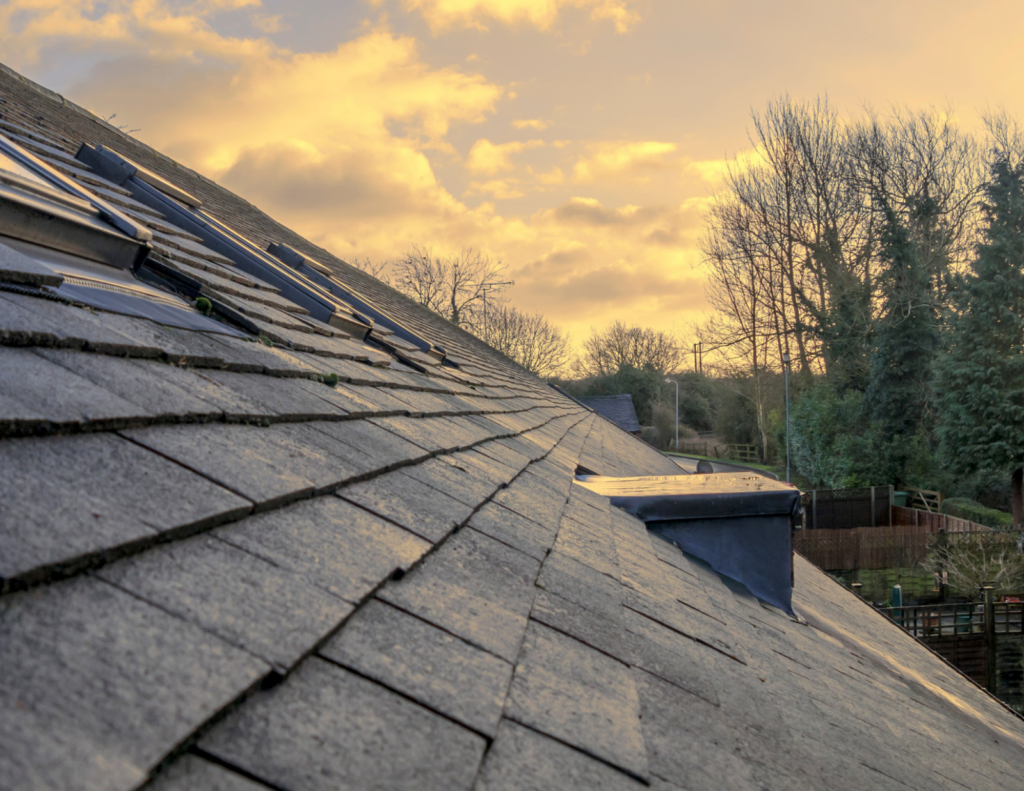When it comes to home insurance, there’s a lot more beneath the surface than just protecting your house from fire or theft. In a recent Instagram Live I chatted with Amber Scism over at State Farm (my very own insurance agent), and we uncovered some surprising and downright fascinating tidbits about home insurance. So, let’s dive into the unexpected, the quirky, and the utterly crucial details you might not know about home insurance!
PLEASE NOTE: We had this discussion in context of the landscape in Oregon specifically. As with any of my chats with the experts, please consult your preferred local professionals directly, or get in touch with me if you’re in Oregon and looking for a knowledgeable expert!
Lastly, we covered so many juicy tidbits in our live together, so to catch more detail, watch the live here.
Ok, on to the meat!
1. Trees: Beautiful Yet Terrifying Giants
We all love a good shade tree, but did you know that trees can be both a homeowner’s dream and nightmare? When ice storms hit and trees start toppling, you might find yourself frantically wondering, “Am I covered?” Here’s the scoop: If your tree falls on your neighbor’s house, it’s generally their homeowner’s insurance that covers the damage. However, if your tree was rotting and you knew about it but did nothing, your insurance might have to step in. The lesson here? Keep an eye on your trees and call an arborist if they start looking sketchy.
2. Umbrella Policies: Not Just for Rainy Days
Think of an umbrella policy as the superhero of insurance. It swoops in to save the day when your regular liability limits are maxed out. Got a lawsuit on your hands because someone tripped on your unkempt sidewalk? That’s when your umbrella policy kicks in. It’s especially handy if you’ve got teenage drivers or multiple properties. And guess what? It’s surprisingly affordable, often costing around $10 a month. Plus, it can even lower your car insurance. Score!
3. Market Value vs. Rebuild Cost
One of the biggest misconceptions in home insurance is confusing market value with rebuild cost. Your home’s market value includes the land it’s on, but your insurance only covers the cost to rebuild the structure itself. So, if your home loan is $750,000 but the rebuild cost is $500,000, that’s what your insurance covers. Be sure to update your policy regularly to address this gap, especially after home improvements. You don’t want your fancy new kitchen left out in the cold after a disaster!
4. Loss of Use: When You Can’t Live in Your Home
Imagine your house is under repair, and you’re wondering if you still have to pay your mortgage. Good news: your insurance may cover the additional living expenses, like an Airbnb or a hotel, while your house is being rebuilt. This includes food and travel costs if you have to commute further. It’s called “loss of use,” and it’s a lifesaver in dire situations.
5. Annual Reviews: Stay Up-to-Date
Insurance isn’t a set-it-and-forget-it kind of deal. You should meet with your insurance agent annually to review your coverage. Have you remodeled your kitchen, added a pergola, or replaced the roof? These changes can affect your rebuild cost and, consequently, your coverage. Staying proactive ensures you’re fully protected.
6. Special Items: NOT Always Covered
Got a $10,000 ring? Your standard homeowner’s policy probably only actually covers a fraction of its value. Items like jewelry, fine arts, and firearms often have capped coverage amounts. To fully protect these valuables, you’ll need a personal articles policy. Pro tip: Take a video inventory of each room in your house once a year and store it safely. It’s invaluable if you ever need to file a claim.

7. Your Rights and Company Rights: Roof Checks and Drones
When you sign a policy, you’re also giving the insurance company some rights to check on your property. In Oregon and Washington, for instance, insurance companies have become more stringent about roof conditions in particular. If your roof is reaching the end of its life (typically less than five years left), you might have to replace it to keep your policy. To ensure your home is well-maintained, companies can use drones or drive-by inspections to assess your property annually (yes, it’s crazy, but true). While this might seem invasive, it’s all about ensuring the longevity and safety of your home. If a problem is found, like a deteriorating tree too close to your house, you’ll receive a notice and have time to address it. If the necessary repairs aren’t made, you could face policy cancellation. Always open mail from your insurance company to stay informed and avoid unpleasant surprises. (Did this fact blow your mind like it did mine?!
8. Sewer Backup: A Common Misconception
In places like Portland, sewer backups are more common than you’d think (ew, right?). Many policies don’t automatically cover this, but you can add a rider for sewer and drain backup. This coverage is crucial, especially if your house is near a school where mischievous kids might flush something they shouldn’t at the local elementary, backing up all of the houses in the vicinity (yes, this is real).
9. Earthquake Insurance: For the Big One Believers
If you live in an earthquake-prone area (like Portland) and believe in “the big one,” earthquake insurance is a must. While the premiums might seem high and deductibles wild (think 15-25% of your rebuild cost), it’s worth it compared to losing everything. Heads up, some companies may require your home to be retro-fitted with earthquake strapping, but others don’t. If this makes this more accessible for you, look for a company that doesn’t require retrofitting. Bonus: If there’s even a mini-quake within 90 miles of Portland, or your address, you won’t be able to get earthquake insurance for at least 90 days after. So if you’re thinking about earthquake insurance, now is better than later!
10. Filing Claims: Know the Drill
I’m sure you know that filing a claim can be a hassle. But did you know that you can call your agent before you file to discuss whether it’s worth it. Claims, especially water damage, stay on your record and can make getting future insurance tough. Your agent can help navigate the process, potentially saving you from unnecessary claims.
Final Thoughts
Home insurance can be complex, but with the right agent and a bit of knowledge, you can navigate it like a pro. As you might have guessed, I’m partial to Amber and have been working with her for years. I’ll put her contact information below so you can get in touch (just let her know I sent you ;)) From understanding the difference between market value and rebuild cost to knowing when an umbrella policy can save your bacon, being informed is your best defense. So, schedule that annual review, update your coverage, and rest easy knowing your home is truly protected.
Stay savvy, homeowners!






